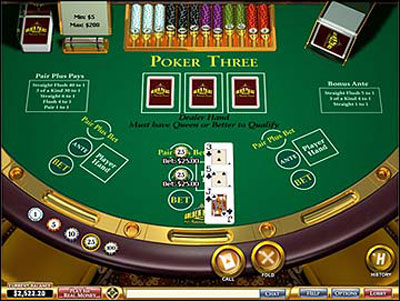-
Online Poker Gambling Legal Countries카테고리 없음 2021. 1. 18. 06:04
Online poker in the United States is a topic that generates lots of information, much of it conflicting but all that can be broken down by state, as we have here. As mentioned, legal United States online poker is not a black and white situation. Aug 11, 2017 Gambling business growth increased with a rapid speed, the reason behind it is the user interaction and gambling legality. Recently many countries passes the gambling legality bill like Japan, Malaysia, Indonesia. Have a brief idea of gambling leg.

Legal Online Poker Sites – The Law Whilst Playing Poker Online
There are hundreds of top quality online poker sites out there on the net. Many of these are legal poker sites, with a few bad eggs thrown in to boot. How can you tell if you are playing at a legal poker site, or if online poker gaming is even legal where you live?
Fortunately, there are a few things to look out for if you want to find a perfectly legal poker site.
Top Poker Rooms for January 2020
Terms and Conditions apply. Must be +18 to participate.
All Poker Rooms are Licensed , Mobile Friendly
100% Up To $1000
Welcome Bonus
349 user ratingsRead Review
100% Up To $400(18+ T&C apply)
Welcome Bonus
219 user ratingsRead Review
100% Up To $2000
Welcome Bonus
0 user ratingsRead Review
200% Up To £500
Welcome Bonus
0 user ratingsRead Review
The Big Quesion: When is a Poker Site Legal?
Contents
- The Big Quesion: When is a Poker Site Legal?
- The Legality of Offshore Poker Sites
Generally speaking, the best thing to do is to first check whether or not poker is legal in your country of residence. There are a handful of ways to go about this.
Generally speaking, for UK players this isn’t a problem, and the same is true for Canadian players. Poker is only officially legal for US players in certain states, and it is widely considered illegal for players in Australia. Other countries have varying poker laws.
The next step is to look at poker licenses. In the United Kingdom, for instance, it is legal for players to play online poker, but only really in legal poker sites which are licensed by the UK Gambling Commission. Checking up the license a poker site has and making sure it is compatible with the country you reside in such clear up any issues surrounding any legal poker sites you aim to play at.
Terms and Conditions Are Important
If you still aren’t sure whether you are playing at legal poker sites, why not check their terms and conditions. Most poker rooms which have an in-depth FAQ or a section in their terms and conditions which states where they accept players from, or more specifically where they do not accept players from.
Bonus Availability
The same is true when we’re looking at the availability of bonuses. Each country has its own regulations in terms of what types of advertising and bonuses a legal poker site can offer its players. You may find that when checking the terms and conditions of a particular bonus that you are not entitled to claim a bonus offer, even if you are in theory permitted to play at a legal poker site. It may seem strange, but this may alter your decision about whether you wish to play at a legal poker site or not.
The Legality of Offshore Poker Sites
If playing poker online isn’t technically legal (or is flat-out illegal) in your country, that doesn’t mean to say that you won’t be able to play poker. You will just have to migrate to an offshore poker site to do so. Officially, these websites won’t be legal poker sites in your country of residence, but most of them are certainly legal poker sites in other countries. Because of this, we can still consider them legal poker sites.
For instance, many of the more respectable poker sites on the net cannot be played in Australia, because they do not have permission to offer Australian players poker games.
However, these sites are global brands and known across the globe, and many are certainly legal in the United Kingdom and other countries. Provided there are no restrictions at the poker room prohibiting you from playing in your country of residence, you can easily sign up and play at these somewhat legal poker sites. These are commonly known as offshore poker sites.
Ways to Beat the System

There are still ways to play at the biggest and best legal poker sites, even if you are not supposed to access them from your country of residence. Using a VPN will mask your location, and make it appear like you come from one country, instead of your actual point of origin. VPNs also mask your activity, so players needn’t worry about having their poker gaming activities monitored or traced.
Another way to beat the system is to play free online poker games. True enough, you won’t win any real money via this method, but you will be playing at perfectly legal poker sites since you are not actually gambling.
Bitcoin poker sites
In theory, there is no such thing as a legal bitcoin poker site. The main reason for this is that no government has officially made bitcoin a legal currency. Many bitcoin poker sites are also unregulated and unlicensed, which means that you run a risk when playing there. On the upside, they accept players from anywhere in the world and provide a certain degree of anonymity to boot.
Conclusion
Of course, the simplest option is to play at legal poker sites which carry licenses issued from your country if poker is legal where you reside. If it is illegal, or a grey zone, then it is best to choose an offshore casino with a respectable license since these still constitute legal poker sites. Failing all of that, bitcoin poker rooms can suffice, too.
Poker Gambling Sites
Want to Know More…
Not every legal poker site has a license issued by your nation’s gambling commission. Because of this, certain poker rooms will accept players from some countries and not others. Alternatively, if neither poker room is licensed by your local gambling commission, your country may have blacklisted a certain poker room and not another (perhaps they haven’t heard of it or got around to blacklisting it) yet.
This depends on the country you are living in. In the UK, players do not pay tax on any winnings they pocket whilst playing online poker. In Canada, you are only taxed on your online poker winnings if you are a professional full-time gambler. Everywhere else, the laws vary. It goes without saying, though, if you are playing a bitcoin poker site (which is not a legal poker site) and you’re paid with a cryptocurrency that the government doesn’t recognise, they can hardly tax you on your winnings.
Yes and no, it really depends where you live. Most countries reserve punishment for operators who offer their services to players, not the player themselves. In almost all cases, players can feel free to play at both legal and illegal poker sites with no consequences. However, in certain Asian countries, you could face prison or fines for gambling, and in strict Islamic countries, you may face far worse punishments.
Yes. For example, a poker site could have a license issued by the UK Gambling Commission, making it a fully legal poker site for UK players to bet at. However, for one of several reasons (for the sake of argument, let’s say they don’t adhere to fair play) they lose their UKGC license. Losing that license would, in theory, no longer make them a legal poker site until the license is restored.
Officially no. Unless you reside in New Jersey (which does offer legal poker sites) or a handful of other states, most US players will not find legal poker sites in the true sense of the term. However, they will find offshore poker sites open to them. These are, once again, legal poker sites, just not in the United States. The reason for this is because each US state issues its own gambling laws, and most are opposed to online poker and casino gambling.
Gambling online falls into a legal grey area. While it is technically illegal in most of the United States, the prosecution and conviction of individual players is very difficult because they're gambling from home. It is also illegal for a gambling Web site to operate within the United States, which is why the offices and servers of most online casinos are located in other countries. There are about 70 countries that allow online gambling sites to set up shop, including Australia, New Zealand, South Korea, Denmark, Finland, France, Germany, and some provinces of Canada.
When you register for an online casino, you are required to agree to the site's terms and conditions. Finding out whether or not gambling is legal where you live is your responsibility. You must also abide by any age limits set on gambling in your locality. If online gambling is illegal in your area, and authorities discover that you've won money, your winnings could be forfeit.
Advertisement
Issues of jurisdiction and sovereignty make gambling laws even murkier. The U.S. Wire Wager Act makes it illegal to use an electronic wire method (which courts generally agree includes the Internet) to transmit bets to places where gambling is not allowed. So a casino set up in the Netherlands is breaking U.S. law if a player in the U.S. plays their games. However, the U.S. doesn't really have the legal authority to prosecute someone in another country. Since players are almost never prosecuted either, we're left with an illegal act that generally goes unpunished. Of course, if an off-shore casino decides to cheat a player out of winnings, and online gambling is illegal in that player's locality, the player will have a difficult time suing the casino.
This brings us to the topic of regulation. Some of the countries that allow online casinos to operate have strict guidelines and regulations that make sure the casinos operate legitimately. They make sure the casino pays out when players win, and they ensure that published odds match the actual odds programmed into each game. Australian and Finnish online casinos are known for adhering to national standards. Some countries are not so strict about regulation and may be more interested in taxing the casinos than making sure that they play fair. There are many online casinos to choose from, and it pays to do some research into the regulations they must follow when you select one.
Legal Online Poker Us
In the next section, we'll find out how players make their money available for online gambling.